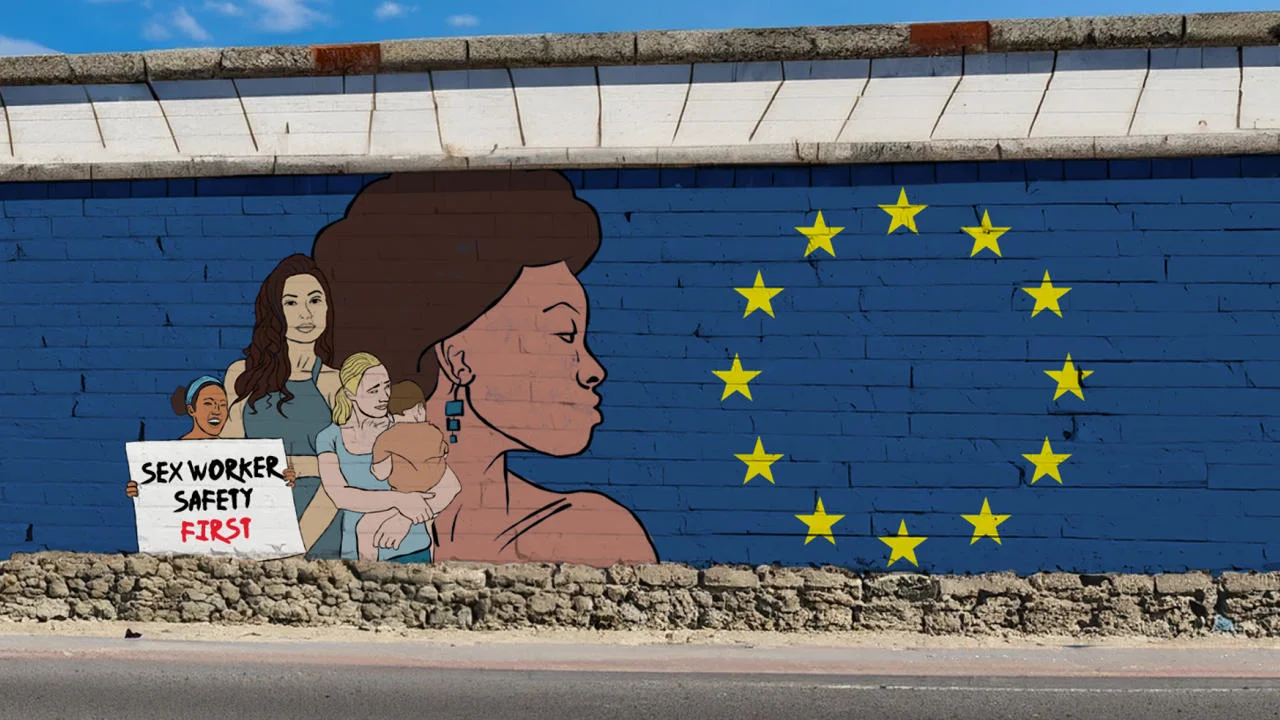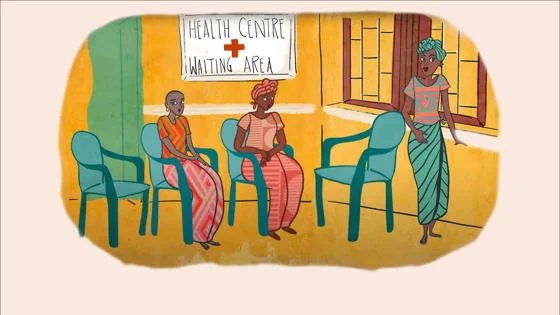Criminalising the sex buyer: what must policymakers learn from the “Nordic model”?

Contents
“Where countries across Europe are grappling with legislation around the buying and selling of sex, the European Union (EU) is attempting to navigate cross-border regulation.
“Until this point, the criminalisation of the sex buyer has played an influential role in debate, sparking trials in Spain and the UK, and legislation in France,” says Dr Niina Vuolajärvi, Assistant Professor in International Migration in the European Institute at LSE.
Yet, in Dr Vuolajärvi’s recent policy brief, based on research carried out in the Nordic regions of Sweden, Norway and Finland, 96 per cent of those surveyed believe the criminalisation of the sex buyer has made workers in the industry more unsafe and more vulnerable to exploitation.
“For the first time, we have the opportunity to put the voices of those most affected by sex trade legislation at the centre of EU debate. We must listen to their experiences.”
Something isn’t right here – the sex trade has not disappeared, and sex workers and people in the sex trade continue to be the main targets of policing, violence and exploitation.
What is the “Nordic model”?
“In 1999, Sweden was the first country to criminalise the buying, but not the selling, of sex,” explains Dr Vuolajärvi. “Similar legislation soon followed in Norway, Finland and Iceland, and the policy approach came to be known as the ‘Nordic model’.
“The model is founded on certain feminist arguments that commercial sex equates to violence against women. Where ‘good sex’ only happens between equals, the exchange of money creates a power imbalance, so the seller can never fully consent.
“From this viewpoint, women who sell sex are victims of an intrinsically exploitative and morally objectionable activity. The emphasis shifts from punishing the passive victim, the sex seller, to removing the active demand, the sex buyer.”
Countries that have adopted the Nordic model may have decriminalised sex workers, but this does not mean they are any more accepting of what is often referred to as the world’s oldest trade than those that view prostitution solely through the criminal lens. “Whatever the reasoning, the sex trade has long been considered objectionable, and its disruption and dismantling are persistently at the centre of policymaking,” explains Dr Vuolajärvi. “The Nordic model is no different in this regard - the removal of demand, as opposed to the punishment of the supply, is considered a progressive and inclusive means to the same end.
“But something isn’t right here – of course the sex trade has not disappeared, and sex workers and people in the sex trade continue to be the main targets of policing, violence and exploitation.”
Because those who work in the sex trade are viewed as victims, any support available is mostly focused on counselling. This is to the detriment of low threshold STI testing, health and legal services.
Questioning the ideology – does it reflect the realities of those who sell sex?
In order to understand the impacts of the Nordic approach to sex workers, Dr Vuolajärvi interviewed sex workers, police, social workers and policymakers in Sweden, Norway and Finland, as well as conducting a policy and legal analysis.
“My findings show that there is a great discrepancy between the Nordic model’s ideological discourse and the realities of people who sell sex,” she says.
“Fundamentally, the single biggest reason given for workers to enter the sex trade was the intention to earn a living. Comparatively, six per cent of those interviewed considered themselves to have been trafficked or forced by someone else to sell sex.
“Where their circumstances and reasons for entering the sex trade differ hugely, it is unhelpful and impractical to group together all those working in the sex trade as victims of one same sweeping ideological injustice.
“Moreover, contrary to the popular narrative, the most serious risks encountered by those working in commercial sex are not caused by exploitation at the hands of sex buyers and pimps. They are most often related to the institutional structures of immigration and policing.”
De facto criminalisation
Dr Vuolajärvi is keen to highlight that while Sweden, Norway and Finland have ostensibly decriminalised the sale of sex, in reality, sex work can be seen to be de facto criminalised through other legislations. In addition, those living the most precarious lives – in particular migrant workers and persons of colour - are found to be particularly impacted by this more “liberal” approach.
It is unhelpful and impractical to group together all those working in the sex trade as victims of one same sweeping ideological injustice.
Dr Vuolajärvi explains: “For migrant workers, who constitute upwards of 70 per cent of people in the sex trade in the region, the sale of sex is grounds for deportation. It is also grounds for denial of entry in immigration laws. In practice, this is the targeted criminalisation of migrant sex work, and of the vast majority of those working in the sex trade.
“Furthermore, broad third-party legislation prohibits any assistance in the sale of sex. Under these laws, for example, landlords and hotel owners can be accused of pimping. Law enforcement clears activity in hotels or private accommodation through threats of legal action. As a result, sex workers are pushed into ever more precarious environments, and they are subject to a dire lack of housing and safe spaces.
“And now workers feel obliged to prioritise the protection of clients over their own needs - negotiations are hurriedly moved from sight and the buyer chooses the private space away from risk of surveillance.
“As a consequence of these legislations, the relationship between the authorities and sex workers is failing. Policing still targets sex workers, who are afraid to report incidences of violence and exploitation for fear of eviction and deportation.”
Sex workers still struggle to access state support
Dr Vuolajärvi’s research highlights the difficulties of developing fair and equitable legislation on prostitution and sex work.
“Social and support services were supposed to be the backbone of this policy approach,” says Dr Vuolajärvi. “However, these promises have not been kept. In Sweden, for example, most of the funding that has been made available has been funnelled into increased policing.
“And because those who work in the sex trade are viewed as victims, any support available is mostly focused on counselling. This is to the detriment of low threshold STI testing, health and legal services.”
The difficulties in accessing state support are reportedly even greater for migrant workers in the sex trade.
“Migrant workers in the sex trade are legally obstructed from applying for permanent residence permits. Consequently, they are not entitled to state services which include social benefits and public housing.”
Calling for change
In her evaluations, Dr Vuolajärvi is clear: “We must acknowledge that where the Nordic model limits access to support, continues punitive policing, and targets migrant workers, it cannot be hailed as a policy that considers the safety and interests of vulnerable people at its heart.
“Neither can it be said that the model’s flagship policy, the criminalisation of the sex buyer, is the sympathetic measure it was purported to be. The mechanism serves only as an accomplice to a complex and problematic apparatus which still prioritises the disruption and dismantling of the sex trade above all else.”
There are, Dr Vuolajärvi believes, other approaches that would reduce exploitation and better support sex workers. In a policy brief, she sets out four key policy recommendations that would counter the damage of the Nordic model. The removal of criminal penalties related to both the selling and buying of sex – a move that would, she argues, help protect the safety, integrity and rights of people in the sex trade. The reform of immigration policies, including the removal of selling sex as a ground for deportation and refusal of entry and unconditional protection for victims of trafficking, which would help reduce exploitation and provide access to other forms of livelihood.
The centring and inclusion of sex workers and people in the sex trade in policymaking and service design/production, to ensure services are adequate and address the needs of a diverse body of people involved in the trade, and the recognition of sex work as economic activity with clear guidance on payment of taxes - a change in approach that would enable sex workers to work legitimately as individual entrepreneurs should they wish, although, Dr Vuolajärvi stresses, this should not extend to sex workers being obliged to register, as, for many, selling sex is a temporary strategy of survival.
“Ultimately, the Nordic model demonstrates that the rhetoric of protection can be misguided if those at the centre of discussion are not given voices in policymaking and service provision,” she says.
“We have the opportunity for serious debate on the issue in the European Parliament, and now is the time to demonstrate that we are giving a platform in these processes to the needs and realities of people in the sex trade.”
Download a PDF version of this article




